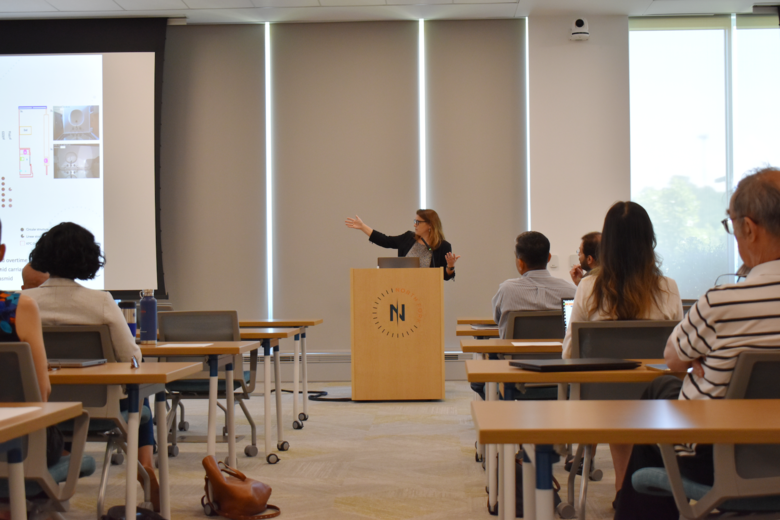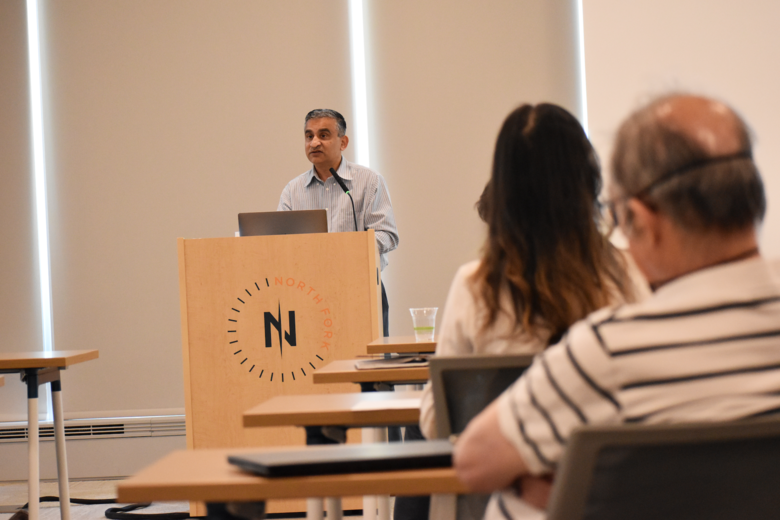
Contagion Science Program Kicks Off to a Good Start
In alignment with the University of Virginia’s goal to move its research from prominence to preeminence, deans, faculty, and researchers from across Grounds got together to participate in the formal launch of the Contagion Science program, an initiative funded by the University as part of its Prominence-to-Preeminence STEM initiative.
This initiative and the program are an example of UVA’s continued emphasis on STEM fields, underlined by strategic investments in research areas that yield high societal impacts. The goals of the Contagion Science program and its investment in new faculty and postdoc positions in key research areas align perfectly with the University’s strategic plan, “A Great and Good University: The 2030 Plan.”
The June 30th meeting included program members from the Biocomplexity Institute, the School of Medicine, the School of Data Science, the College and Graduate School of Arts and Sciences, and the School of Engineering and Applied Sciences who came together for an afternoon of collaboration, sharing, and learning.

In their opening remarks the program’s co-directors, Chris Barrett, Executive Director of the Biocomplexity Institute and Professor of Computer Science in the School of Engineering and Applied Science, and Madhav Marathe, Director of the Network Systems Science and Advanced Computing Division at the Biocomplexity Institute, and a Professor of Computer Science in the School of Engineering and Applied Science, emphasized the unique opportunity the Contagion Science program offers to society and the impact such a program can have in other areas:
“We are excited to move forward with this important program that seeks to reduce the global threat of contagion and contagents (e.g. infectious diseases) through technology and engineering innovations. We believe that putting together some of the best minds at UVA in a cross-collaborative think tank of sorts, will also lead to new general theories for understanding large-scale networked complex systems. These concepts could be translated to other disciplines such as cybersecurity, ecology, and the social sciences. At least, that is our hope.”

This crosscutting program builds on existing projects and expertise across the four schools and the Institute. As part of the kickoff meeting agenda, several faculty members showcased exciting glimpses into their respective contagion-related research. The program intends to build and expand these efforts by creating bridges for new interdisciplinary collaborations and leveraging a team science approach.
For more information about the Contagion Science program at the University of Virginia, visit the program home page.